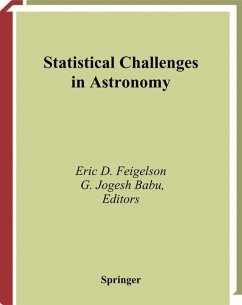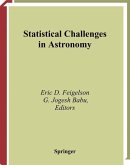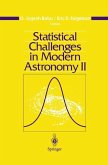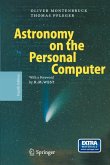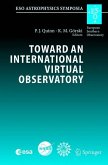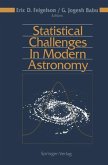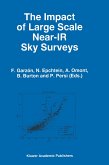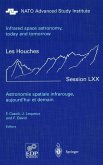Statistical Physics I discusses the fundamentals of equilibrium statistical mechanics, focusing on basic physical aspects. No previous knowledge of thermodynamics or the molecular theory of gases is assumed. Illustrative examples based on simple materials and photon systems elucidate the central ideas and methods.
Digital sky surveys, high-precision astrometry from satellite data, deep-space data from orbiting telescopes, and the like have all increased the quantity and quality of astronomical data by orders of magnitude per year for several years. Making sense of this wealth of data requires sophisticated statistical techniques. Fortunately, statistical methodologies have similarly made great strides in recent years. Powerful synergies thus emerge when astronomers and statisticians join in examining astrostatistical problems and approaches.
The book begins with an historical overview and tutorial articles on basic cosmology for statisticians and the principles of Bayesian analysis for astronomers. As in earlier volumes in this series, research contributions discussing topics in one field are joined with commentary from scholars in the other. Thus, for example, an overview of Bayesian methods for Poissonian data is joined by discussions of planning astronomical observations withoptimal efficiency and nested models to deal with instrumental effects.
The principal theme for the volume is the statistical methods needed to model fundamental characteristics of the early universe on its largest scales.
Hinweis: Dieser Artikel kann nur an eine deutsche Lieferadresse ausgeliefert werden.
Digital sky surveys, high-precision astrometry from satellite data, deep-space data from orbiting telescopes, and the like have all increased the quantity and quality of astronomical data by orders of magnitude per year for several years. Making sense of this wealth of data requires sophisticated statistical techniques. Fortunately, statistical methodologies have similarly made great strides in recent years. Powerful synergies thus emerge when astronomers and statisticians join in examining astrostatistical problems and approaches.
The book begins with an historical overview and tutorial articles on basic cosmology for statisticians and the principles of Bayesian analysis for astronomers. As in earlier volumes in this series, research contributions discussing topics in one field are joined with commentary from scholars in the other. Thus, for example, an overview of Bayesian methods for Poissonian data is joined by discussions of planning astronomical observations withoptimal efficiency and nested models to deal with instrumental effects.
The principal theme for the volume is the statistical methods needed to model fundamental characteristics of the early universe on its largest scales.
Hinweis: Dieser Artikel kann nur an eine deutsche Lieferadresse ausgeliefert werden.

